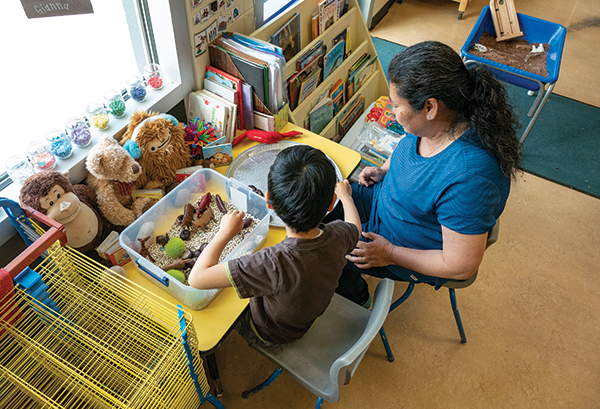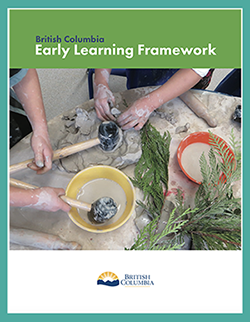
Module 4: Living Inquiries – Engagement with Others, Materials, and the World
Knowledge and Theories
Educators reflect on the concept of knowledge. They respect the knowledge and theories children hold.
Critically Reflective Questions
- Think about the concept of knowledge:
- What does it mean?
- What knowledge is important?
- Who decides what knowledge is important?
- What kinds of questions do I ask about children’s engagements?
- How does my language reflect children as creators of theories?
- How do my questions reflect children as constructors of knowledge?
- Consider a culture of research. What does that look like to me?
- I notice children using shovels to move water from one puddle to another. This suggests several disciplines. I think of hydraulics, physics, geography, flow, and waves. I consider how children work with these complex ideas:
- How can I pay attention to the ways that children bring multiple ideas together?
- How does my thinking, with many disciplines in mind, enhance how I see children’s engagements?
- Consider the knowledge children bring into the program:
- What opportunities do they have to share and extend this knowledge?
Case Study: Knowledge and theories
In one school library, several primary classes attend a blended program combining literacy and craft-making with the school’s librarian. Using storytelling, craft-making, and picture books, children create their own meaning of the day’s lesson. This allows for enhanced student voice and choice in the classroom, as well as individualized learning to increase student success and develop literacy skills.
Reflective Question
The educators in this case study show how they respect the knowledge and theories children hold.
In what ways can you pay attention to the ways children bring multiple subjects or disciplines together?

